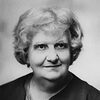Henry Cornelius Agrippa (1486–1535)
Author of Three Books of Occult Philosophy
About the Author
Born in Cologne, Germany, Henry Cornelius Agrippa of Nettesheim lived a life that combined action and adventure with scholarly pursuits. His early career was spent as a secretary and diplomat for the Holy Roman Emperor. Missions to Paris and London brought him into contact with new intellectual show more movements, and he immersed himself in the study of philosophy and theology. He learned Hebrew in order to read the Jewish cabalistic literature. His first great written work, The Occult Philosophy (De occulta philosophia), completed 1509-10 is a compendium offering a mystical interpretation of nature through such arcane methods as cabalistic manipulation of Hebrew words and Pythagorean numerology. It quickly established itself as a major handbook of Renaissance magic and deeply influenced such thinkers as Giordano Bruno. In the years following the writing of De occulta philosophia, Agrippa served as a soldier, lawyer, physician, and theologian. A virulent critic of the clergy and of scholastic theology, he engaged in bitter exchanges with theologically conservative opponents over his religious attitudes. Agrippa's own position lay between the intellectual reformism of Erasmus and the outright break with Catholicism represented by Martin Luther. However, Agrippa later moved away from his early confidence in the magical and mystical methods to an unquestioning biblical faith. Agrippa's most important later work Of the Vanitie and uncertaintie of artes and sciences (De incertitudine et vanitate scientiarum et artium) was published at Antwerp in 1530. In the work, Agrippa advocates a thoroughgoing rejection of learning and intellectual attainment in favor of a simple religious piety. That belief came to play an important role in the Renaissance revival of the skeptical tradition of antiquity. Shortly after the appearance of De incertitudine, Agrippa was imprisoned for heresy and died in exile in Grenoble, France. (Bowker Author Biography) show less
Image credit: Cornelius Agrippa, 1538.
Series
Works by Henry Cornelius Agrippa
Declamation on the Nobility and Preeminence of the Female Sex (1529) — Author — 63 copies, 4 reviews
De nobilitate et praecellentia foeminei sexus = Von Adel und Vorrang des weiblichen Geschlechtes ; lateinischer Text… (1997) 2 copies
Della nobilta et eccellenza delle donne, nuouamente dalla lingua francese nella italiana tradotto 2 copies, 1 review
Magische Werke samt den geheimnisvollen Schriften des Petrus von Abano, Pictorius von Villingen, Gerhard von Cremona,… (1979) 1 copy
BLP's Agrippa Book IV 1 copy
How Inferior Things Are Subjected To Superior Bodies And How The Body's Actions And Dispositions Of Men Are Ascribed To… (2006) 1 copy
BLP's Agrippa Book III 1 copy
BLP's Agrippa Book I 1 copy
BLP's Agrippa Book II 1 copy
Tagged
Common Knowledge
- Legal name
- Agrippa von Nettesheim, Heinrich Cornelius
- Other names
- Agrippa of Nettesheim, Henry Cornelius
- Birthdate
- 1486-09-14
- Date of death
- 1535-02-18
- Burial location
- Grenoble, France
- Gender
- male
- Nationality
- Germany
- Birthplace
- Cologne, Holy Roman Empire
- Place of death
- Grenoble, France
- Places of residence
- Holy Roman Empire
France
Spain
Italy - Education
- University of Cologne
Studied with Johannes Trihemius - Occupations
- professor
Judge of the Prerogative Court
author
scholar
lawyer
soldier (show all 9)
theologian
alchemist
magician - Relationships
- Trihemius, Johannes (Kommilitone)
- Organizations
- Lecturer at the University of Dole, France
Lecturer at the University of Pavia - Awards and honors
- Knight of the Holy Roman Empire
- Short biography
- Heinrich Cornelius Agrippa von Nettesheim (most often referred to by the Latinate appellation Cornelius Agrippa, sometimes Anglicized as Henry Cornelius Agrippa) was an occult writer, theologian, astrologer, and alchemist. His writings on magic and occult philosophy were a significant influence on the later work of Giordano Bruno and John Dee, and thus came to underpin much of the Western esoteric tradition.
Members
Reviews
Lists
You May Also Like
Associated Authors
Statistics
- Works
- 47
- Members
- 1,631
- Popularity
- #15,755
- Rating
- 4.1
- Reviews
- 18
- ISBNs
- 115
- Languages
- 9
- Favorited
- 12















Agrippa, disciple of Trithemius was a rare defender of the female sex in these days, so all his arguments need to be put in socio-historical context.
His own wife perished in the black death plague, as he was desperately attempting to find a cure to this illness as a renown plague-doctor, and with the help of his assistant, supposedly - he found one, yet this is shrouded in legend.… (more)